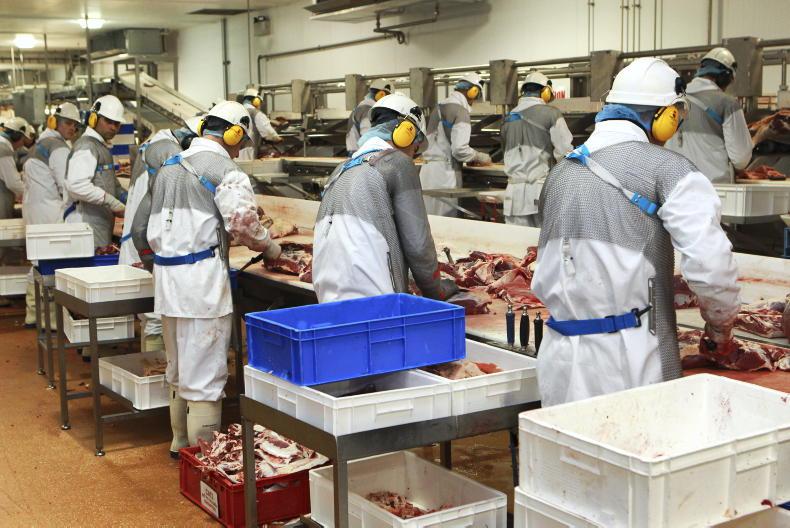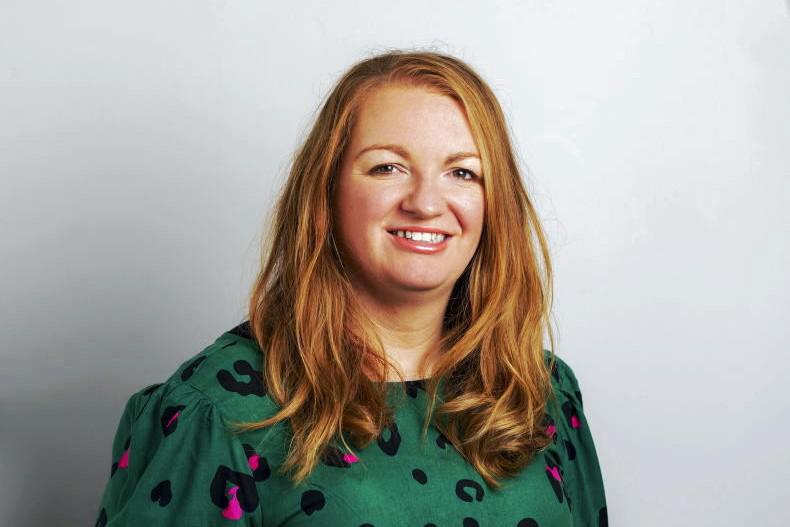A GP consultation can range from €30 to €60, according to a survey conducted by Irish Country Living. Seventy-eight GPs, three in each county, were contacted to give a fair assessment of the situation across the country. Within each county, a GP from a town or city was contacted as well as a rural GP. Our survey found that while fees can reach as high as €60 in Dublin, a quote of just €30 was obtained in Leitrim.
These prices were the minority, however, at 5% and 3% respectively. The most consistent price for a consultation was €50, with 57% of GPs charging this amount.
All GPs contacted in Galway, Longford, Meath, Tipperary and Westmeath gave a rate of €50. Kildare and Wicklow quoted prices of €55, with one doctor in Kildare charging €60. Cavan showed quite fair prices, with two GPs quoting a consultation at €40, while another quoted €45.
Discrepancies
Irish Country Living also found a significant variation in price with regard to follow-up fees.
Each GP we contacted was asked how much a follow-up fee would be if a patient came back still sick after being prescribed antibiotics. While 8% of GPs said there would be no charge, two GP surgeries quoted a repeat fee of €50, ie no reduction even though the patient was returning with the same problem.
The most common price received was €30, with 30% of GPs quoting this figure. So why is there such a huge difference in price? While overhead fees and property prices obviously contribute to the increased fees in Dublin, does it merit the difference of €30? This was the question put to the National Association of General Practitioners (NAGP).
A representative from the organisation says the situation goes far deeper than just increased overheads.
Private Patients Pay the Price
“The main issue influencing GP consultation fees for private patients is the deplorable underfunding of GP services for medical card patients. GPs receive, on average, €9 per month for each medical card patient, irrespective of whether they attend one or 10 times over that month.
“For some types of patients, the funding provided by the Government to support the provision of care is even smaller. For boys aged between five and 15 the Government gives a GP €3.60 per month. That is less than a box of paracetamol in some places.
“General practice in this country has always been about providing exactly the same care to all patients, regardless of whether they are private or medical card patients.
“Unfortunately, the funding provided by the State for public patients, in many instances, just doesn’t cover the costs of that care. As a result, it inevitably falls on private patients and GPs to subsidise the State’s responsibility to medical card patients.
“This underfunding often has a more profound effect on surgeries where a large proportion of patients are medical card patients.”
Full Capacity
Dr Andrew Jordan, chair of the organisation further comments: “Although less than 50% of patients in the country have a medical card, the fact is that medical card holders can take up to 80% of the practise’s time. This is understandable as often medical card holders have very serious illnesses, but it does have an effect on the price that GPs charge private patients just to stay in business.”
Dr Jordan also argues that people can’t take a fee at face value.
“It is also important to look into the facilities of a GP practise. The VHI clinic in Dublin at €120 per consultation is the most expensive price in the country, but you can walk in and are guaranteed to be seen almost immediately. If you have an injury, for example, there are X-ray machines on-site, meaning you can avoid a visit to the A&E. Such factors must be considered when looking at prices.”
,strong>No to New Business
Another issue that Irish Country Living identified while conducting the survey was the amount of GPs that were unwilling to take on new patients. We found that 14% of practises refused the potential of new business from a private patient.
While some gave reasons such as the doctor was retiring or going on maternity leave, others said they were simply at capacity.
On top of that, 19% of receptionists said we would have to fill in a form or call into the surgery and only then would the doctor confirm whether one could be taken on as a patient.
While this response was felt right across the country, it was very consistent in Navan, Co Meath.
A reader has contacted Irish Country Living about the situation in Navan, saying that she had recently moved to the area and could not find a doctor to take on her family, including her newborn son.
She says: “Although a clinic eventually took us on as patients, there is a two week wait for an appointment with the female doctor but I just don’t have the option to move practises.”
A source working in healthcare in Navan who wished to remain nameless adds: “There is a very high level of medical card holders in the area. It means that many surgeries, including ourselves, are completely at capacity and cannot take on new patients.”
Get the Most from Your Appointment
This issue is obviously not the fault of medical card holders who are sick and deserving of this benefit. However, the system itself is at fault.
GPs seem to be faced with a significant amount of issues due to the structure of the medical card set-up. However, private patients across the country are paying the price for this broken service, faced with massive discrepancies in price not just for consultations, but also for follow-up consultations.
Irish Country Living obtained this advice to ensure that patients get the most out of their visit to their doctor:
Although your visit to the doctor may be a private issue, advise the receptionist where possible about what your consultation is about. For example, you might need to be fasting before certain blood tests or if you are getting a vaccine it may need to be ordered in. This avoids the scenario where you have to have an unnecessary second visit.If you have any questions, write them down in advance so you get full satisfaction from your visit.It is always cheaper to visit the doctor rather than request a house call.With 91% of GPs surveyed offering an appointment system, call in advance and book in so you’re not wasting your own time in a waiting room.
A GP consultation can range from €30 to €60, according to a survey conducted by Irish Country Living. Seventy-eight GPs, three in each county, were contacted to give a fair assessment of the situation across the country. Within each county, a GP from a town or city was contacted as well as a rural GP. Our survey found that while fees can reach as high as €60 in Dublin, a quote of just €30 was obtained in Leitrim.
These prices were the minority, however, at 5% and 3% respectively. The most consistent price for a consultation was €50, with 57% of GPs charging this amount.
All GPs contacted in Galway, Longford, Meath, Tipperary and Westmeath gave a rate of €50. Kildare and Wicklow quoted prices of €55, with one doctor in Kildare charging €60. Cavan showed quite fair prices, with two GPs quoting a consultation at €40, while another quoted €45.
Discrepancies
Irish Country Living also found a significant variation in price with regard to follow-up fees.
Each GP we contacted was asked how much a follow-up fee would be if a patient came back still sick after being prescribed antibiotics. While 8% of GPs said there would be no charge, two GP surgeries quoted a repeat fee of €50, ie no reduction even though the patient was returning with the same problem.
The most common price received was €30, with 30% of GPs quoting this figure. So why is there such a huge difference in price? While overhead fees and property prices obviously contribute to the increased fees in Dublin, does it merit the difference of €30? This was the question put to the National Association of General Practitioners (NAGP).
A representative from the organisation says the situation goes far deeper than just increased overheads.
Private Patients Pay the Price
“The main issue influencing GP consultation fees for private patients is the deplorable underfunding of GP services for medical card patients. GPs receive, on average, €9 per month for each medical card patient, irrespective of whether they attend one or 10 times over that month.
“For some types of patients, the funding provided by the Government to support the provision of care is even smaller. For boys aged between five and 15 the Government gives a GP €3.60 per month. That is less than a box of paracetamol in some places.
“General practice in this country has always been about providing exactly the same care to all patients, regardless of whether they are private or medical card patients.
“Unfortunately, the funding provided by the State for public patients, in many instances, just doesn’t cover the costs of that care. As a result, it inevitably falls on private patients and GPs to subsidise the State’s responsibility to medical card patients.
“This underfunding often has a more profound effect on surgeries where a large proportion of patients are medical card patients.”
Full Capacity
Dr Andrew Jordan, chair of the organisation further comments: “Although less than 50% of patients in the country have a medical card, the fact is that medical card holders can take up to 80% of the practise’s time. This is understandable as often medical card holders have very serious illnesses, but it does have an effect on the price that GPs charge private patients just to stay in business.”
Dr Jordan also argues that people can’t take a fee at face value.
“It is also important to look into the facilities of a GP practise. The VHI clinic in Dublin at €120 per consultation is the most expensive price in the country, but you can walk in and are guaranteed to be seen almost immediately. If you have an injury, for example, there are X-ray machines on-site, meaning you can avoid a visit to the A&E. Such factors must be considered when looking at prices.”
,strong>No to New Business
Another issue that Irish Country Living identified while conducting the survey was the amount of GPs that were unwilling to take on new patients. We found that 14% of practises refused the potential of new business from a private patient.
While some gave reasons such as the doctor was retiring or going on maternity leave, others said they were simply at capacity.
On top of that, 19% of receptionists said we would have to fill in a form or call into the surgery and only then would the doctor confirm whether one could be taken on as a patient.
While this response was felt right across the country, it was very consistent in Navan, Co Meath.
A reader has contacted Irish Country Living about the situation in Navan, saying that she had recently moved to the area and could not find a doctor to take on her family, including her newborn son.
She says: “Although a clinic eventually took us on as patients, there is a two week wait for an appointment with the female doctor but I just don’t have the option to move practises.”
A source working in healthcare in Navan who wished to remain nameless adds: “There is a very high level of medical card holders in the area. It means that many surgeries, including ourselves, are completely at capacity and cannot take on new patients.”
Get the Most from Your Appointment
This issue is obviously not the fault of medical card holders who are sick and deserving of this benefit. However, the system itself is at fault.
GPs seem to be faced with a significant amount of issues due to the structure of the medical card set-up. However, private patients across the country are paying the price for this broken service, faced with massive discrepancies in price not just for consultations, but also for follow-up consultations.
Irish Country Living obtained this advice to ensure that patients get the most out of their visit to their doctor:
Although your visit to the doctor may be a private issue, advise the receptionist where possible about what your consultation is about. For example, you might need to be fasting before certain blood tests or if you are getting a vaccine it may need to be ordered in. This avoids the scenario where you have to have an unnecessary second visit.If you have any questions, write them down in advance so you get full satisfaction from your visit.It is always cheaper to visit the doctor rather than request a house call.With 91% of GPs surveyed offering an appointment system, call in advance and book in so you’re not wasting your own time in a waiting room. 









SHARING OPTIONS